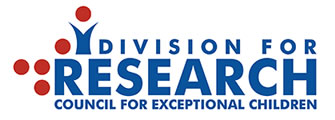
You are watching the news when your child suddenly asks why the children on TV are behind chain-link fences and not with their families. How do you respond to your child about the immigration situation in the U.S.? Media coverage of family separation, immigrant detention centers, and asylum seekers waiting in tent cities along the U.S.-Mexico border has been widespread and may be distressing for children. Below are some facts about the effects of immigration enforcement on children and some ideas for talking with your children about this important issue.
Fact #1: All children, regardless of immigration status, may be affected by these events.
How to talk to your children about immigration:
- Start a conversation with your child. Ask your child what they have been hearing about immigration at school and from their friends. Give them an opportunity to ask questions. Explain what is going on in a way that they can understand. For example, with younger children, you may want to talk about their safety and your family’s safety. With older children, you may want to discuss their experiences or the experiences of family or friends who have been affected by immigration enforcement.
- Limit your child’s exposure to media coverage. Repeated exposure to images from the news can be distressing for children.
- Create a routine for your child. Daily routines are beneficial for all children and help to foster a sense of safety and predictability.
- Talk to your child about your own family’s immigration story. With the exception of Native American families, most families in the U.S. have their own immigration history. Sharing stories with your child about how and why your family immigrated to the U.S. can help to humanize the experiences of recent immigrants and asylum-seekers.
- Read a children’s book about the immigrant experience with your child. There are many great children’s books available that tell stories about immigrant and refugee children from a wide variety of racial and ethnic backgrounds. These stories can help foster empathy and affirm the experiences of immigrant-origin and refugee children.
Fact #2: Children from immigrant-origin and refugee families may internalize negative messages about immigrants and asylum-seekers (e.g., “Immigrants/refugees are bad,” “My family does not belong in the U.S.”)
How to help your children develop pride and respect for their heritage:
- Emphasize the positive aspects of your child’s immigrant heritage. This may include conversations about cultural traditions, for example. These conversations can help your child to develop a sense of pride in their heritage and your family’s country of origin.
- Address experiences of racism and xenophobia. It is important to acknowledge and “name” experiences of racism (i.e., discrimination on the basis of race) xenophobia (i.e., discrimination against immigrants) when directed at yourself, your child, or others. It is important for your child to know that they have a safe adult to talk to about experiences of discrimination if/when they occur.
Fact #3: Children from undocumented or mixed status families may have specific concerns about their safety and the safety of their loved ones due to the risk of detention and deportation.
How to address your children’s concerns:
- When your child raises questions, respond to their concerns in a way they can understand. For example, with younger children, you could say something like “Some people are not being nice to immigrants. There are also many people that want to help and welcome immigrants to the U.S. We want everyone to belong and feel safe here. If you ever feel unsafe or if someone says something that is not nice, you can tell me. My job is to make you feel safe.” With older children, you could answer their questions more explicitly, particularly as it concerns their safety and the safety of family members. For example, “Some members of our family are not U.S. citizens and could be sent back to [country of origin]. We are doing our best to prevent that. If you ever feel worried about this or unsafe, you can tell me. It is important for us to be able to talk about it. My job is to make you feel safe.” Avoiding a child’s question does not make the question go away. Instead, not being able to talk about a situation can make children more scared and more worried.
- Develop a safety plan for your child. It is important to develop a plan for your family if you are at risk of being detained or deported. A safety plan may include identifying an adult who will pick your child up from school in the event that you are detained, and designating a caregiver who your child will live with in your absence. Children are often more aware than one might expect. Talk with your child about your plan for their care.
Recent policy changes have made the future unpredictable for immigrant-origin families in the U.S. and asylum seekers. Conversations with your child about immigration will likely be ongoing as policies continue to change in the coming months and years.
Resources
Developing a family safety plan (English): https://www.ilrc.org/family-preparedness-plan
Developing a family safety plan (Spanish): https://www.ilrc.org/plan-de-preparacion-familiar
Workbook to support children impacted by deportation policy (English): http://www.childrenspsychologicalhealthcenter.org/wp-content/uploads/2014/11/Healing-and-Resilience%E2%80%94An-Activity-Book-for-Latino-Children-Impacted-by-Deportation%E2%80%94English.pdf
Workbook to support children impacted by deportation policy (Spanish): http://www.childrenspsychologicalhealthcenter.org/wp-content/uploads/2014/11/Recuperacio%CC%81n-y-Resiliencia%E2%80%94Un-Libro-de-Actividades-para-Nin%CC%83os-Latinos-Impactados-por-la-Deportacio%CC%81n%E2%80%94Espan%CC%83ol.pdf
Report on the impact of immigration enforcement on children and families: https://www.americanprogress.org/wpcontent/uploads/2012/08/DrebyImmigrationFamiliesFINAL.pdf
Proper citation link for this blog post:Colgan, C. A. & Lai, B. S. (October 16, 2019). How to talk to your child about immigration: Recommendations for parents. Retrieved from https://infoaboutkids.org/blog/how-to-talk-to-your-child-about-immigration-recommendations-for-parents/
















